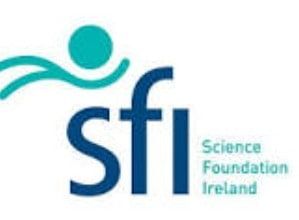Posted on about 3 years ago by Laurentina Kennedy

Collaboration nation: How Irish scientists are breaking through on a global level

SFI-sponsored researchers are involved in more than 5,700 international academic research partnerships across 84 countries

Sponsored by Science Foundation Ireland
If evidence were needed of Ireland’s global standing as a top-class research-performing nation, it can be found in Science Foundation Ireland’s very impressive statistics for international research collaboration. SFI-supported researchers are involved in more than 5,700 international academic research partnerships across 84 countries and a further 1,500 collaborations with industry internationally.
“A lot of people say it’s very important to collaborate internationally, but we have to look at its purpose,” says SFI deputy director general Dr Ciarán Seoighe. “From our point of view, it has multiple benefits. To start with, as a small country, successful collaborations with the best players in the world gives us a leg-up internationally and helps us to punch above our weight.
“It also helps to showcase Ireland on the international stage as a competitive, innovative country with ambitions to become a global innovation leader,” he adds. “IDA Ireland and Enterprise Ireland are doing a really brilliant job to showcase Irish talent and the capability of Irish business overseas. We need to showcase Irish research as well. We want to work hand-in-glove with Enterprise Ireland and the IDA in a team Ireland approach.
Another benefit is the diversification of funding such collaborations bring, with Irish researchers able to access finance from the EU and other funding streams. Indeed, SFI-supported researchers are competing successfully at the highest level in Europe.
The European Research Council (ERC) has played a big role in Ireland’s success, according to Seoighe. “The ERC’s role is to support fundamental blue-skies research, judged solely on excellence,” he notes. “It covers all disciplines and career stages through its suite of programmes, and they are among the most prestigious awards globally that a researcher can secure.”
He explains that SFI and the Irish Research Council act as national contact points for the ERC programme in Ireland, to provide information and support to applicants. Financial support is also provided by Enterprise Ireland, which has overall responsibility for Horizon Europe research funding in Ireland.
“As a country, Ireland does very well in winning research funding from the ERC and Horizon Europe. We are in the upper echelons of European countries when it comes to our success rate. One of things we are seeing now is the mission-oriented approach in Europe. This is a problem-solving approach to fuel innovation-led growth. We all have the same problems relating to climate, health and so on, and this approach will help us to pool our knowledge and research talent to find solutions to them.”
SFI also collaborates with international partner agencies such as the National Science Foundation (NSF) in the US, National Institutes of Health (NIH), UK Research and Innovation (UKRI), and the Royal Society.
Collaboration with the NSF led to the launch in 2006 of the US-Ireland Research and Development Partnership, an initiative that aims to increase the level of collaborative R&D among researchers and industry professionals across the three jurisdictions of the Republic of Ireland, Northern Ireland and the US.
In March, SFI announced a new a joint investment of €9 million under the partnership in seven awards to support more than 14 research positions in the Republic of Ireland for the next three to five years. The research projects receiving funding are in the areas of energy and sustainability; telecommunications and quantum networks; nanomaterials, optics and photonics; tissue engineering for tendon reconstruction; and sensor monitoring for water quality and peatlands.
“We really value these partnerships and our work with other agencies internationally,” says Seoighe. “We work together to learn from each other’s successes and mistakes. We share best practice, insights and knowledge.”
That knowledge-sharing activity extends far beyond the US and Europe through the Small Advanced Economies Initiative. “It brings together similar-sized economies like New Zealand, Finland, Singapore, Israel and Denmark to discuss what we do, what worked for us and what didn’t work.”
Attracting international researchers into Ireland is another element of that international work. “The Research Professorship Programme is attracting star research performers from overseas. It has assisted research bodies to recruit world-leading researchers for professorial chairs, or similar research leadership positions in targeted scientific areas.”
One of those leading researchers is Séamus Davis, professor of quantum physics at UCC, who has been named as the recipient of the 2023 Oliver E Buckley physics prize by the American Physical Society. “Prof Davis is the first Irish winner of the prize, and UCC is the first Irish institution to host a winner,” says Seoighe. “This is a tremendous achievement. Eighteen previous winners of the Buckley Prize have won the Nobel Prize for physics. His move back to Ireland and research at UCC is supported by SFI.”